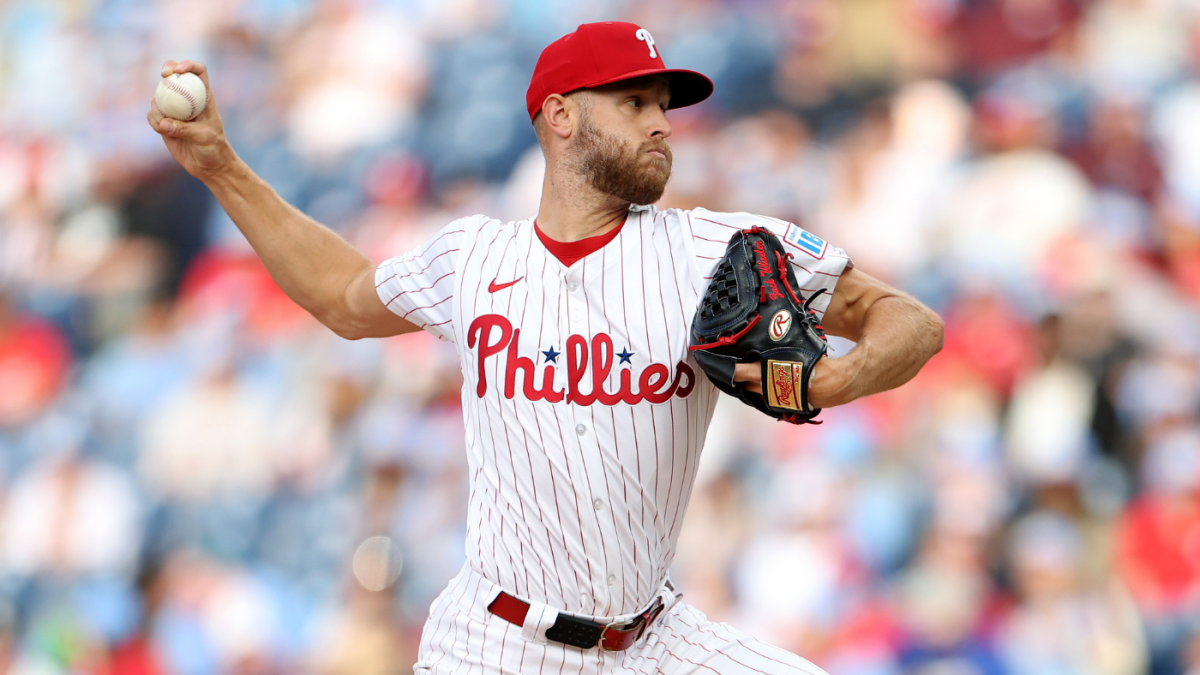Navigating the Defined Exit: Zack Wheeler’s Strategic Retirement and Its Broader Impact
Zack Wheeler’s announcement to retire after the 2027 MLB season offers a rare glimpse into an athlete’s proactive approach to career closure. His decision is not just a personal milestone but a significant moment for the Philadelphia Phillies, baseball fans, and the wider sports community. By exploring Wheeler’s clear timeline, balancing act between peak performance and life priorities, and the ripple effects of his retirement, we gain valuable insights into how defined exits can reshape narratives in professional sports.
A Uniquely Transparent Career Conclusion
In professional sports, retirement often feels like a question mark—uncertain, fraught with injury anxieties, or extended by contract negotiations and fluctuating performance. Wheeler’s upfront announcement breaks this mold. Committing to a three-year, $126 million contract extension that aligns precisely with his retirement timeline signals an extraordinary degree of agency. At age 35 now, planning an exit at 37 fits within the physically demanding norms for pitchers, yet his clarity gives him control over the story of his career’s end, choosing timing over circumstance.
This clarity challenges the conventional athlete arc, where retirement is typically approached reactively. Wheeler’s approach reframes retirement as a conscious decision—a powerful narrative shift that emphasizes personal agency, foresight, and dignity. It also offers teammates, the franchise, and fans a finite horizon to celebrate his contributions while preparing for change.
Excellence in Performance Meets Personal Fulfillment
Wheeler’s sustained elite performance cements his status among baseball’s top pitchers. His Wins Above Replacement (WAR) figures—6.1 in the prior season and 2.8 in the current—demonstrate ongoing effectiveness that belies any notion of decline imminent with retirement. While debates swirl around his Hall of Fame candidacy, his career WAR of 38.0 situates him competitively within that conversation and leaves room to grow through 2027.
Yet Wheeler’s motivations transcend mere statistics. His expressed desire to prioritize family and personal well-being reflects a holistic perspective rarely foregrounded in athletic career narratives. In an industry that often values relentless physical output and grinding through wear and tear, Wheeler’s emphasis on quality of life introduces a refreshing dialogue about balance. Such transparency could inspire other athletes to consider retirement on their own terms, dismantling the stigma of “giving up” and celebrating strategic endings.
Organizational Ripples: Phillies’ Strategic Horizon
For the Phillies, Wheeler’s declared retirement brings a juxtaposition of challenge and opportunity. Losing a frontline ace demands intensive succession planning, a process already underway with prospects like Andrew Painter easing into the spotlight despite a recent Tommy John surgery recovery. The Phillies must balance competing priorities—remaining competitive now while nurturing future stars to sustain long-term success.
Wheeler’s fixed timeline is a strategic asset, allowing the front office to make calculated decisions regarding contract renewals, player development, and coaching investments without ambiguity. Equally significant is managing fan expectations, as Wheeler’s presence as a clubhouse leader fosters both on-field performance and team culture. The organization’s ability to pivot smoothly post-2027 will define the legacy of this transition era.
Legacy Redefined: Leadership Beyond Championships
While Wheeler’s career lacks marquee championship hardware, his impact resonates deeper than trophies. His consistent work ethic, resilience, and unwavering commitment have set a standard for professionalism since his MLB debut in 2013. Opting for an unequivocal retirement also signals personal fulfillment detached from external validation—a maturity that redefines success metrics in sports beyond traditional accolades.
Moreover, by publicly committing to a retirement timeline, Wheeler challenges professional sports’ often ambiguous retirement scripts. This transparency promotes a wider conversation about athlete boundaries, mental health, and the dignity inherent in choosing one’s moment to step away. His legacy thus becomes one of thoughtful agency and leadership, inspiring a culture shift in how athletes manage their professional journeys.
Closing Reflection: Wheeler’s Retirement as a Catalyst for Change
Zack Wheeler’s deliberate career conclusion after the 2027 season transcends a mere endpoint; it is a bold statement about control, balance, and legacy in modern baseball. His clarity in retirement plans elevates discussions on athlete autonomy and the complex interplay of performance, personal life, and legacy.
For the Phillies, it signals the end of a cherished pitching era and the beginning of a strategic rebuilding phase. For fans and observers, it is a moment to celebrate not only Wheeler’s skill but also his courage to define his narrative. Wheeler’s example may well transform how future athletes envision their careers—embracing the power to choose their exits with intention and dignity, forever altering the sports world’s approach to life after competition.











